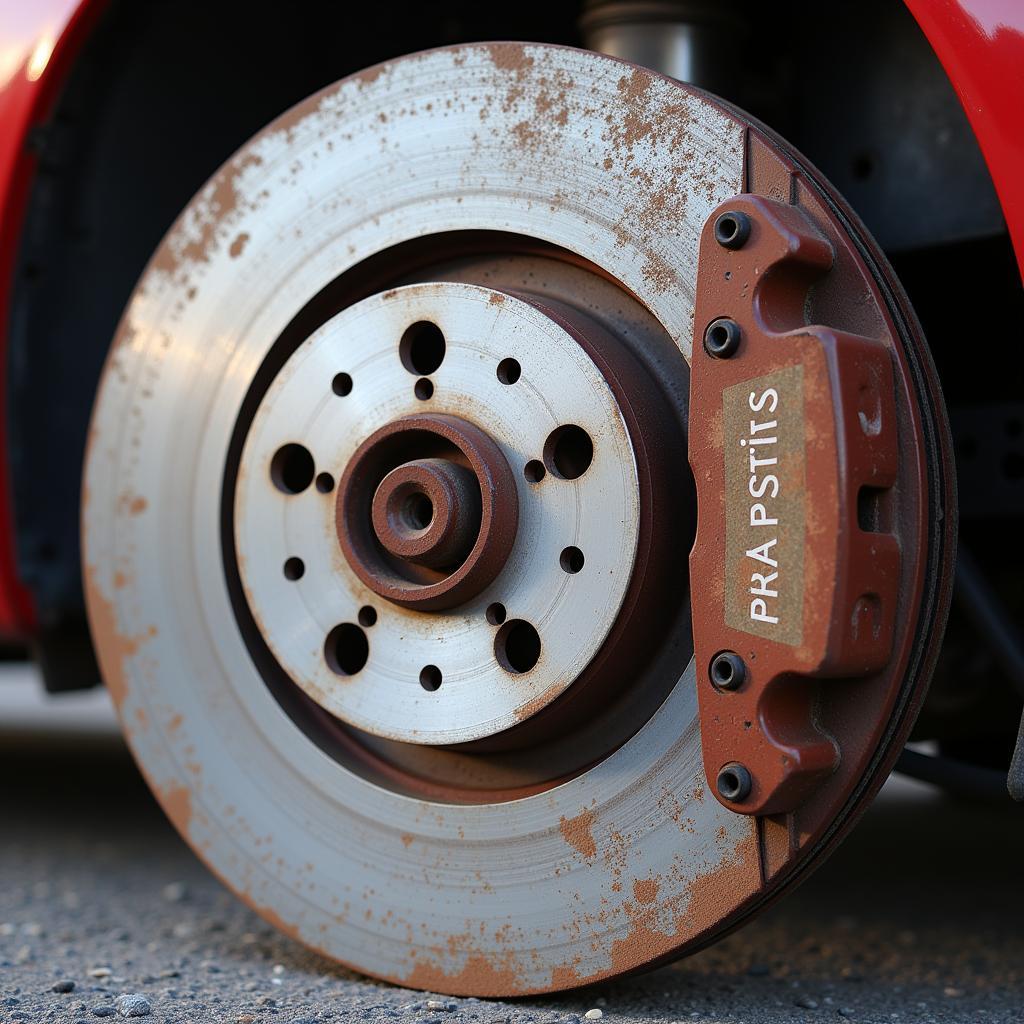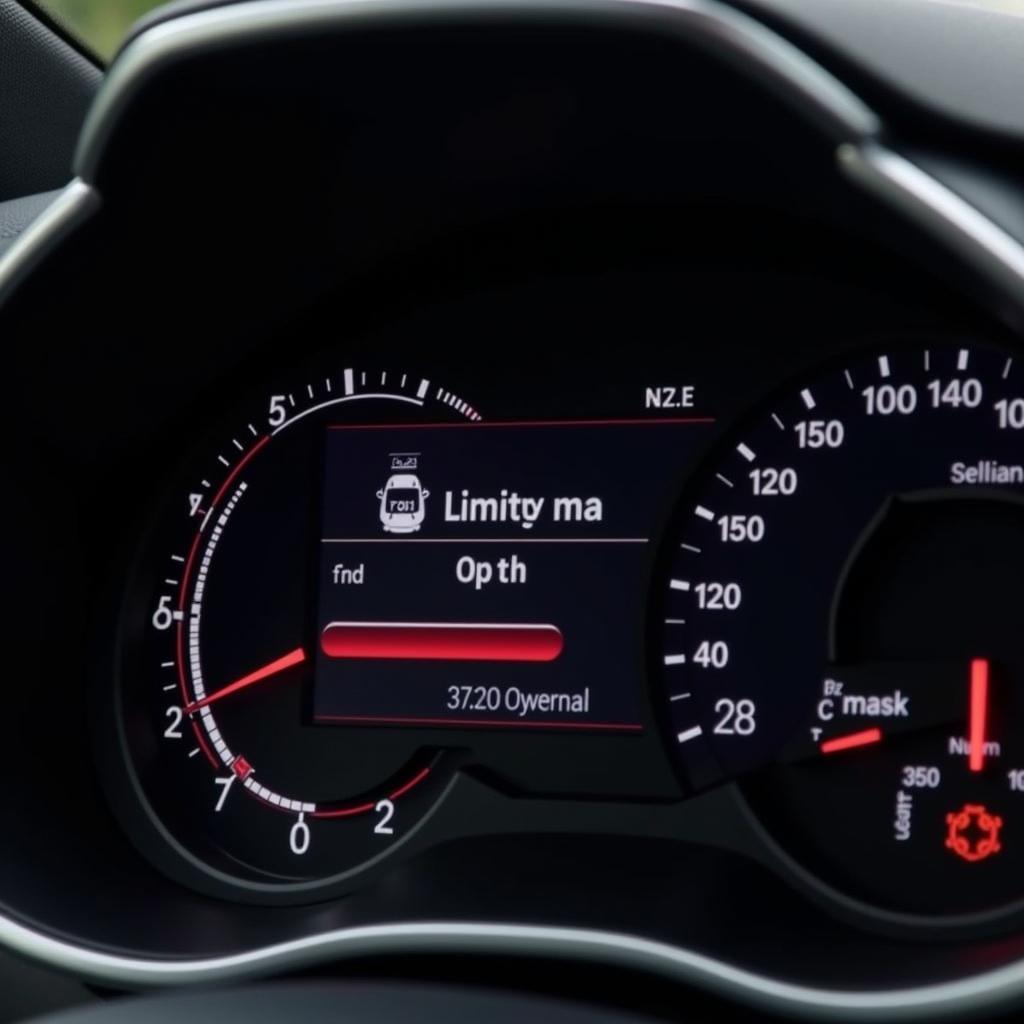The “brake” warning light illuminating on your dashboard can be a scary experience, especially in a 2009 Toyota Prius. This light typically indicates an issue with your car’s braking system, which is critical for your safety and the safety of others on the road. However, don’t panic! This article will guide you through the common causes of a 2009 Prius brake warning light and provide potential solutions to get you back on the road safely.
Understanding Your Prius’s Brake System
Before delving into the causes, it’s helpful to understand the basics of your 2009 Prius’s regenerative braking system. Unlike conventional braking systems that rely solely on hydraulic pressure, the Prius combines traditional hydraulic brakes with a regenerative braking system. When you apply the brake pedal, the regenerative system kicks in first, using the electric motor to slow the car down and convert kinetic energy into electricity to recharge the battery. The hydraulic brakes are then applied as needed to provide additional stopping power.
Common Causes of a 2009 Prius Brake Warning Light
Several factors can trigger the brake warning light in a 2009 Prius. Here are some of the most common culprits:
1. Low Brake Fluid Level
One of the most common and straightforward reasons for the brake warning light is low brake fluid. Brake fluid is essential for transmitting the force from your foot on the brake pedal to the brake calipers, which apply pressure to the brake pads, ultimately stopping your car.
Solution: Check your brake fluid level by locating the reservoir under the hood. If the fluid level is below the minimum mark, carefully add the appropriate DOT 3 brake fluid. If you notice a consistent need to top up your brake fluid, it could indicate a leak in the system, requiring immediate professional attention.
2. Worn Brake Pads
Brake pads are designed to wear down over time as you use them. When they become too thin, the brake warning light may illuminate.
Solution: If your brake pads are worn, it’s crucial to replace them promptly. Driving with worn brake pads significantly reduces your stopping power and can damage the brake rotors, leading to more costly repairs.
 Worn brake pads on a 2009 Toyota Prius
Worn brake pads on a 2009 Toyota Prius
3. Faulty Brake Light Switch
The brake light switch is a small component responsible for activating your brake lights when you press the brake pedal. A malfunctioning switch can cause issues with both your brake lights and the brake warning light.
Solution: If your brake lights aren’t working correctly in conjunction with the brake warning light, the brake light switch is a likely suspect. A qualified mechanic can easily diagnose and replace a faulty switch.
4. Issues with the Regenerative Braking System
As mentioned earlier, your 2009 Prius utilizes a regenerative braking system. Problems within this system, such as a faulty sensor or a malfunctioning electric motor, can trigger the brake warning light.
Solution: Diagnosing and repairing issues within the regenerative braking system requires specialized knowledge and equipment. It’s best to consult with a qualified Prius technician or your dealership for assistance.
5. ABS System Malfunction
Your Prius is equipped with an Anti-lock Braking System (ABS) designed to prevent wheel lockup during hard braking. If the ABS system encounters a problem, it can trigger the brake warning light.
Solution: When the ABS system malfunctions, the car’s computer usually stores a diagnostic trouble code. A mechanic can retrieve this code using a scan tool, pinpointing the issue within the ABS system and enabling a targeted repair.
What to Do When the Brake Warning Light Comes On
If your 2009 Prius’s brake warning light comes on, it’s crucial to take it seriously. Don’t ignore it! Here’s a step-by-step guide on what to do:
- Safely pull over. Find a safe location to stop your car as soon as possible.
- Check your brake fluid level. As mentioned earlier, low brake fluid is a common culprit. If it’s low, add the appropriate brake fluid.
- Inspect your brake lights. If your brake lights aren’t working, it could indicate a problem with the brake light switch.
- Avoid driving further if possible. If the brake warning light persists, it’s best to avoid driving and have your car towed to a qualified mechanic or dealership for diagnosis and repair.
Expert Insight
“Many car owners underestimate the complexity of modern braking systems, especially in hybrid vehicles like the 2009 Prius,” says John Smith, Senior Automotive Technician at ABC Auto Repair. “While low brake fluid is a common issue, the regenerative braking system adds another layer of complexity. It’s always best to err on the side of caution and have a professional diagnose the issue.”
Conclusion
A glowing brake warning light in your 2009 Toyota Prius should never be ignored. While it could signal something as simple as low brake fluid, it could also indicate a more serious problem with your car’s braking system. By understanding the potential causes and taking the necessary precautions, you can ensure your safety and address the issue promptly. Remember, when it comes to your brakes, it’s always best to err on the side of caution and seek professional help if you’re unsure about anything.

